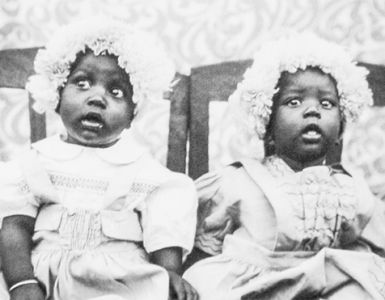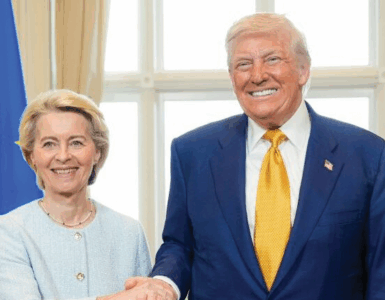Dedication: Voice of the Voiceless, a book to remind the world of struggling Tibetans
By Jacob Mawela
South Africans will remember His Holiness-the 14th Dalai Lama – as the monk who was at the centre of a diplomatic storm when the South African government refused him entry into country to be part of the 14th summit of Nobel Peace laureates in Cape Town in 2009.

Two years later in 2011, a similar fate followed him. On Archbishop Emeritus Desmond Tutu’s 80th birthday – a fellow-Nobel Peace Laureate – the Dalai Lama was denied a visa to attend the cleric’s celebrations due to the South African government’s delays in processing his application.
The Dalai Lama’s office was forced to withdraw the application as a result of bureaucratic difficulties ostensibly out of fear of upsetting the People’s Republic of China’s government, which to this day accuses him of being a separatist.
But being at loggerheads with the establishment is a familiar state of being for the 89-year-old spiritual leader of Tibetan Buddhism, with the given birth spiritual name of Tenzin Gyatso.
On Sunday he turns 90.
He continues to live as a stateless Tibetan in India, forced into forced exile in 1959 at the age of 25, in the aftermath of the People’s Republic of China invasion of his homeland in 1950.
The book suggest that the Communist China’s incursion was in violation of the treaty of AD 821–822 – conferring equal and independent status to Tibet and China.
According to a historical overview of the Tibet, the Dalai Lama describes what the Tibetans refer to as the “priest-patron” relationship – a model from which emanated the Tibetan lamas, which began in 1260 when Genghis Khan’s grandson, Kublai, named Phagpa Lama as the head of Buddhism within his domain.
Harking back to the Yuan dynasty proclaimed in 1271 by Kublai as Mongol rulers of China with Phagpa Lama as religious leader across Chinese territories, “most of Tibet proper remained outside the direct control of the Mongol bureaucracy”.
This, according to the author, corroborates the assertion that Tibet had key attributes of an independent country comprising its own national government, currency, passports, postal service, military, and foreign relations, among others.
In an anecdote depicting an early impression of his outlook on the role he’d been born into, the then 19-year-old Dalai Lama reminisced about a September 4, 1954 private meeting with the then 61-year-old Chairman Mao Zedong in Beijing.
The writer adds that the meeting concluded with the Chinese leader opening the teenager’s car door for him, shaking his hand, and saying to the youthful Dalai Lama, “Your coming to Beijing is a coming back to your own home”.
During the same visit, he was introduced to international leaders such as Jawaharlal Nehru, who would welcome him when he arrived in India as a refugee in 1959.
He also met, according to the author, Communist Party members including Xi Zhongxun, the father of the present Chinese leader, President Xi Jinping, whom he offered a wristwatch as a gift.
But it turned out the welcoming embrace of the young leader belied the conquest of his country, which at the time was in the fourth year of Chinese occupation. Akin to that of another Nobel Peace laureate winner, the Reverend Martin Luther King Jr, the Dalai Lama’s approach against systemic repression has, over seven decades, been that of nonviolence as he seeks freedom for his people, becoming a voice of the voiceless.
The Dalai Lama, the author notes, describes his people’s plight as an existential crisis in which their culture, language and religion, is at stake, but asserts their aspiration for freedom will not be forever crushed through oppression.
He was once lambasted by the leader of the Communist Party in Tibet as “a wolf in a monk’s robes, a devil with a human face but the heart of a beast”.
A period of dialogue and negotiated settlement spanning three decades between 1950 through 1980 amounted to no progress, causing him, in exasperation, to describe the Chinese Communist leaders as “only having a mouth to speak but no ear to listen”.
Dalai Lama said that despite there being no meaningful breakthrough with regard to the Tibet question, what gives him hope is that the relationship between the Tibetan and Chinese peoples has not been irreparably damaged.
He said he would only set foot again on home soil if the People’s Republic of China desisted from making pre-conditions for the recognition of Tibet and Taiwan as parts of China. In the book, The Voice for the Voiceless, the Dalai Lama reminds the world of Tibet’s unresolved struggle for freedom and the hardship his people continue to face.
He was awarded the Nobel Peace Prize in 1989, in recognition of his advocacy for world peace – and environmental concerns.
He holds a steadfast commitment that the quest for the freedom and dignity of his people is paramount, and this would be his lifelong mission.
• A trade paperback, Voice for the Voiceless is published by HarperCollins UK and distributed in South Africa by Jonathan Ball Publishers. Available at leading bookstores countrywide, it retails for R440.
Dalai Lama’s 90th birthday: A global celebration of compassion, peace and wisdom
On July 6, millions worldwide will unite in celebration of His Holiness the 14th Dalai Lama — a timeless beacon of peace, compassion and moral courage. This milestone 90th birthday will be marked by real-time global celebrations, stories, and cultural tributes that transcend borders and connect hearts. It offers a rare and joyful window into the life and legacy of one of the world’s most beloved spiritual leaders.
The public is encouraged to join the celebration by sharing acts of compassion, stories of kindness, or personal birthday wishes for the Dalai Lama on social media. Posts tagged with #DalaiLama90, #CompassionRising, and shared with @CompassionRisingWorldTour on Instagram, may be featured as part of the global tribute.































